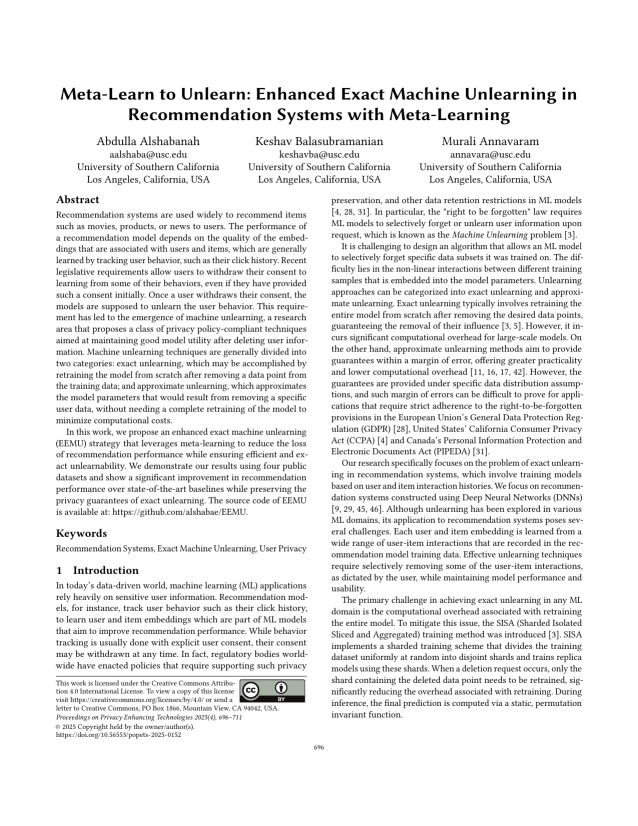Meta-Learn to Unlearn: Enhanced Exact Machine Unlearning in Recommendation Systems with Meta-Learning
Authors: Abdulla Alshabanah (University of Southern California), Keshav Balasubramanian (University of Southern California), Murali Annavaram (University of Southern California)
Volume: 2025
Issue: 4
Pages: 696–711
DOI: https://doi.org/10.56553/popets-2025-0152
Abstract: Recommendation systems are used widely to recommend items such as movies, products, or news to users. The performance of a recommendation model depends on the quality of the embeddings that are associated with users and items, which are generally learned by tracking user behavior, such as their click history. Recent legislative requirements allow users to withdraw their consent to learning from some of their behaviors, even if they have provided such a consent initially. Once a user withdraws their consent, the models are supposed to unlearn the user behavior. This requirement has led to the emergence of machine unlearning, a research area that proposes a class of privacy policy-compliant techniques aimed at maintaining good model utility after deleting user information. Machine unlearning techniques are generally divided into two categories: exact unlearning, which may be accomplished by retraining the model from scratch after removing a data point from the training data; and approximate unlearning, which approximates the model parameters that would result from removing a specific user data, without needing a complete retraining of the model to minimize computational costs. In this work, we propose an enhanced exact machine unlearning (EEMU) strategy that leverages meta-learning to reduce the loss of recommendation performance while ensuring efficient and exact unlearnability. We demonstrate our results using four public datasets and show a significant improvement in recommendation performance over state-of-the-art baselines while preserving the privacy guarantees of exact unlearning.
Keywords: Recommendation Systems, Exact Machine Unlearning, User Privacy
Copyright in PoPETs articles are held by their authors. This article is published under a Creative Commons Attribution 4.0 license.

